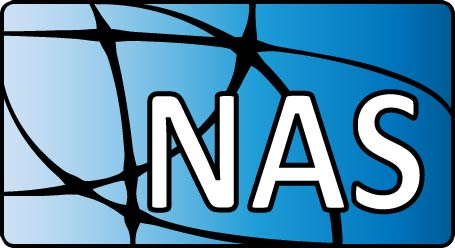Invited Speakers
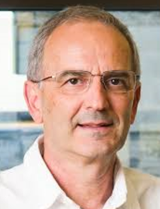 |
Jose L Marzo is Full Professor at the Computer Architecture and Technology Department at the University of Girona, Spain. He was with Telefonica (main Spanish Telecom Operator) at the engineering and development departments before joining academia in 1991. His research interests are in the fields of communication networks, complex networks control and management, in particular network resilience in disaster scenarios. He leads the research Lab in Broadband Communications and Distributed Systems at the University of Girona. He coordinated the participation of the research group in some national Spanish and European research projects. Since 2012 Jose L Marzo is also adjunct Professor at the Department of Electrical and Computer Engineering, Kansas State University (KSU). There he is member of the Network Science and Engineering Group. The main activity in KSU deals with developing large failure models based on epidemics. Jose L Marzo has participated to the technical program committees and chairing sessions of several conferences, including SPECTS, IEEE Globecom, ICC and Infocom. He served as associated editor of the International Journal of Communications Systems. He has co-authored several papers published in international journals and presented in leading international conferences. |
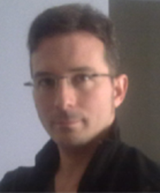 |
Eusebi Calle is an Associated Professor at the University of Girona (UdG) where he develops his research in telecommunication networks, network science, robustness and resilience of networks, and routing schemes. He has co-authored more than 100 papers in International congresses and journals. He is also part of different TPCs such as DRCN or RNDM. Currently, he is also the coordinator of the Computer Science studies at UdG. |
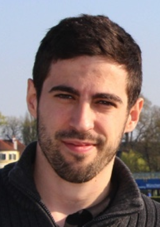 |
Sergio Gomez Cosgaya is an assistant researcher at the Broadband Network Control and Management (BCDS) research group at the University of Girona. He is in the research group since many years ago while coursing the degree at computer engineering and now he is finishing the studies about computer engineering master. Since 2013 he is working in the mentioned research group, working first in topics related to real-time videoconference applications based and quality of service (QoS) and then started working in main research group activity, that is analysing robustness network against several kinds of failures. In April 2017, he stayed in Munich at Technical University of Munich in a Short Time Scientific Missions (STSM) in the COST-RECODIS (Resilient Communication Services Protecting End-user Applications from Disaster-based Failures). He is now working in a tool that helps executing network robustness simulations and visualizing their results in a dynamic visualization tool. |
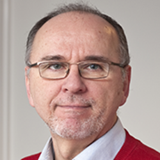 |
Nemanja Trifunović is Associate Professor of Water Supply Engineering at IHE Delft Institute for Water Education, The Netherlands. He is specialist in the field of water distribution and specifically in network hydraulic modelling. 30-years long professional experience includes educational, research and capacity building projects in several countries mostly in Africa and Asia. Currently, he is leading international consortia in two large capacity building projects in Mozambique and South Africa. |
 |
Rob Smets received his M.Sc. and Ph.D. from the Faculty of Electrical Engineering at the Eindhoven University of Technology in 1994 and 1999, respectively, where after he joined the optical research group of Lucent Technologies, now also known as Nokia. In 2008 he accepted a position at TNO where he worked as a network consultant and architect and broadened his knowledge on networks and connectivity. In 2013 he left TNO to become full time optical architect with SURFnet. (National Research and Education Network operator in the Netherlands). In his current role, he is responsible for all transport services and for innovating SURFnet’s transport network. |
 |
After my under graduation in Electrical Engineering, I moved to Europe to pursue a dual degree masters in smart electrical networks and systems engineering, through the Innoenergy program. This gave me the flexibility to choose between different universities in different countries. I started my Masters at Royal institute of technology, Stockholm and later finished at TU, Eindhoven. The field of risk assessment and reliability of power systems intrigued my interest when I took up my graduate thesis assignment at TenneT TSO where I worked on risk assessment of extra high voltage cables. After my graduation, I joined SIM-CI and have been working on modeling component level risks in electrical systems and interdependencies involving electrical networks. I share a passion for sustainability and strive my best to contribute to it. |
 |
Lóránt (Lóri) Tavasszy is full professor in Freight Transport & Logistics at the Delft University of Technology. His research involves freight transportation modelling at urban, national, continental and global level. Between 1996 and 2016, he worked with the Dutch national research institute TNO and held part time chairs at the University of Nijmegen and TU Delft. He is chair of the scientific Committee of the World Conference for Transport Research Society; co-chair of the working group on Hubs, Corridors and Synchromodality of the European Technology Platform on Logistics ALICE and member of various scientific committees of the Transportation Research Board. |
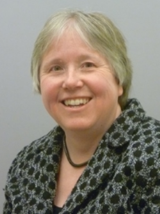 |
Dr Marieke Klaver studied Mathematics at the University of Leiden. After her PhD in 1990, she joined TNO where she worked as scientist and project manager in modelling and problem solving in the area of logistics, personnel planning and defence planning. Since 1997, Marieke takes part in TNO's R&D efforts in the area of the vulnerability of information infrastructures, Critical Infrastructure Protection (CIP), and cyber security. She has been project manager and senior scientist for a number of studies on dependencies of critical (information) infrastructures, including studies on defining the national CI, the EU JLS European Risk Assessment Methodology (EURAM) project and the EC-co funded RECIPE project on good practices for CIP policies. Currently she is the lead scientist in a national project on CIP, in collaboration with the Ministry of Security and Justice. |
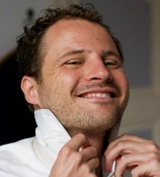 |
Theo van Ruijven (PhD, Delft University of Technology) is a senior research scientist at TNO. Having a background in Public Administration (Leiden University) and Industrial Ecology (Delft University of Technology), the focus of his current work is on the continuity and security of critical infrastructures in a time of digitalization and a strive for increased sustainability. |
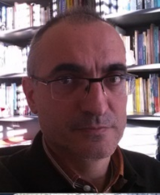 |
Associate professor of Applied Mathematics at the Department of Computer Science, Applied Mathematics, and Statistics, Universitat de Girona. Main research topics: population dynamics, epidemic modelling, and complex networks. |
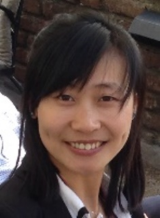 |
Xiangrong Wang obtained her PhD degree in 2016 at the Delft University of Technology under the supervision of Prof. Piet Van Mieghem and Prof. Robert E. Kooij. Her PhD topic focused on the robustness of networks, from both theoretical and applicable perspectives. Since March of 2017, she is a postdoctoral researcher in the department of applied mathematics at TU Delft under the supervision of Johan Dubbeldam. Her current research project is the robustness of logistic networks. |
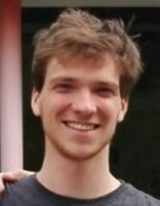 |
Karel Devriendt started his studies with a BSc in Electrical Engineering at the KULeuven in Belgium. After spending one year of studies at KTH Stockholm, focusing on Multimedia Signal Processing, he did an MSc in Electrical Engineering: Signals & Systems at the TU Delft, where he specialised in Network Science under the supervision of Piet Van Mieghem. His current interests include epidemic processes on graphs, spectral graph theory and the mathematical foundations of Network Science. |


